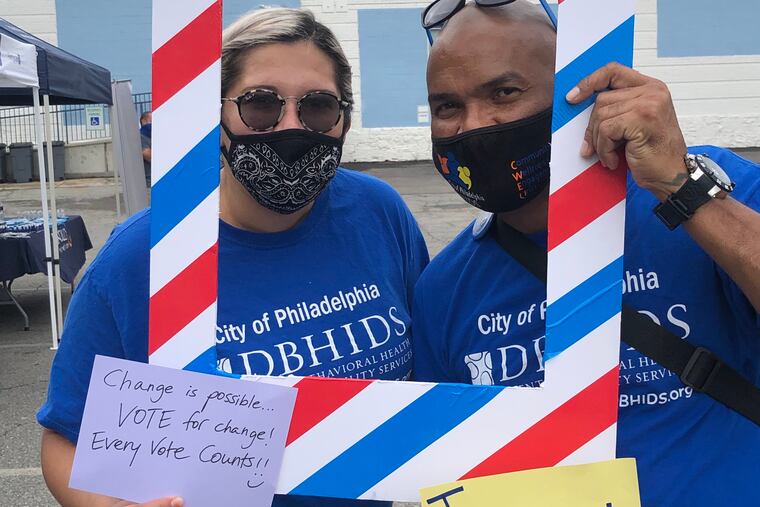Vote on mental health policy to save lives and money in this year’s elections | Opinion
Only 43% of adults in the U.S. are receiving the mental health treatment they need.

We’ve all been more than a little preoccupied with the omnipresent pandemic that is COVID-19. The United States has recently surpassed over 200,000 COVID-related deaths, many of us are juggling virtual schooling, caregiving, and remote or in-person work, and this week Pennsylvania and New Jersey have reported their highest case levels since late spring. The pandemic has shone a light on our society’s existing racial disparities in health care, in education, and in the workforce.
While our focus for this pandemic is primarily on stopping the spread of an infectious disease, we must also consider the implications for our mental health and well-being.
» READ MORE: Pennsylvanians deserve better mental health care than just the emergency department safety net | Opinion
Every election carries critical implications for mental health policy, access to mental health care, and social supports for those who struggle with a mental health condition. Mental health is something that affects everyone, particularly during the current climate of financial uncertainty, pandemic-related anxiety, widespread grief and loss, and social isolation.
While one in four American adults will experience some type of mental health challenge in their lifetime, only 43% of adults will receive the treatment they need. The statistics for accessing care are more alarming when race is taken into consideration. Just 31% of Black adults with a mental health condition will receive treatment, compared with 49% of white adults.
Access to mental health treatment is only one concern of many that impact our nation’s mental health, and they should factor into your evaluations of health-care plans — including specific mental health initiatives — and other relevant policy positions of candidates on the ballot. Key mental health issues to consider when researching candidates and casting your vote include:
Empowering individuals who live with mental health conditions to lead full, healthy lives based in recovery, resilience, and self-determination. This includes the continuing fight for community-based services and supports, shifting away from institutionalization.
Individuals experiencing a mental health crisis are entitled to a safe and humane response. Over one-third of incarcerated adults and nearly 75% of youth in the juvenile justice system have diagnosable mental health conditions. Community-based mental health services can relieve the burden of response from law enforcement and other first responders, avoiding legal outcomes that can be detrimental to a person’s mental well-being.
“Community-based mental health services can relieve the burden of response from law enforcement and other first responders.”
School-based suicide prevention and mental health education programs are a critical component to addressing mental health needs for teens. Seventy-five percent of serious mental illness occurs by age 24, and one in six youth have a mental health condition. Addressing mental health in our education system can lead to earlier intervention and serve students where they are.
Health insurance plans should be held accountable for mental health parity. Mental health must be treated with the same value and considerations as physical health.
The lack of safe and affordable housing acutely impacts people who live with mental health conditions. One in five people experiencing homelessness has a serious mental health condition. Housing is one of the strongest barriers to recovery and resilience.
Serious mental illness leads to over $190 billion in lost earnings each year in the United States, and the unemployment rate is higher among adults with a mental health condition. Every American has the right to be meaningfully employed and positively contribute to their communities.
» READ MORE: Eight priorities for Philly’s next behavioral health commissioner | Opinion
So many important issues fight for center stage when we think about elections: housing, taxes, education, foreign policy. While mental health hardly ever receives the attention it deserves, you are already voting on mental health when you vote on other key issues. Just as our mood and mental wellness impact our day-to-day routines, so too does mental health connect to every aspect of our institutions — hospitals, schools, policing, to name a few — in this country. It is impossible to separate mental health issues from other issues that we consider when casting our ballots.
You can learn more about key mental health issues and take the pledge to Vote4MentalHealth at www.vote4mentalhealth.org.
Kate Fox, MPH is a mental health advocate, a doctoral student at Drexel University Dornsife School of Public Health, and a member of the College of Physicians’ Section on Public Health and Preventive Medicine steering committee. @katefoxdrph